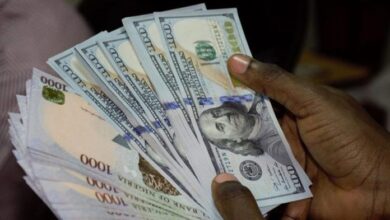Why are Nigerians this bad?

There is no reason why the last couple of weeks should not go down as the most unusual in the annals of this country. Everything that could possibly go awry has done so with considerable aplomb. Painfully scissored by sundry scarcities (fuel, cash, permanent voters cards, etc.) the economy may have ground to a screeching halt. We await confirmation of our worst fears when the data for output growth, unemployment levels, and inflation for this period become available from the official bean counters. Anecdotal evidence, meanwhile, suggests that the economy’s pain will be severe. The normally bustling streets of Lagos, for one, increasingly resemble a post-apocalyptic world. And if footage making the rounds on social media, last week, of the new queue culture at banks’ cash machines are anything to swear by, the burden on the man on the streets might be nearing the point at which the proverbial camel broke its back.
As with most things over the past eight years, the national sense of the burden of responsibility for all this remains capricious. A gullible president, heart in the right place (of course), may have, again, been made a monkey of by knaves in high places ― at least, on the not so insignificant matter of the ongoing banknotes swap. That these scallywags suffer no adverse consequences for their deceitful ways is also par for our national course.
Also Read: Gender Agenda and the 2022 Constitutional Amendment
One thing, though, remains immutable. The way we think through things has been unaffected by the ructions that have seized the economy. Easy to read this in terms of the myriad explanations that have emerged for the discord between how much of the new banknotes the Central Bank of Nigeria (CBN) insists it is making available to commercial banks, and how much the latter are passing on to the streets. You could have your pick of explanations ― a grand plot to disincentivise the use of money to sway the outcomes of the forthcoming general elections, or an even more shrewd attempt to incentivise domestic economic entities to abandon cash for alternate financial channels in completing their financial transactions. But by far more symptomatic of how we think things through is how easily large contingents of the domestic commentariat concluded that the markets’ responses to the crises evidence the native wickedness of the average Nigerian.
Nearly always our thought leaders assume what is to be proved (that were similar conditions in place in other countries, their nationals would act differently) as part of the proof (that Nigerians are bad). Take just one example. Prohibition in the United States of America. The whole point of the Eighteenth Amendment to the U.S. Constitution was well-meant ― to deal with rising levels of alcohol abuse by establishing the prohibition of alcohol in the United States. An indeed, a couple of months after the amendment came into force on January 16, 1920, alcohol consumption in the U.S. dropped to about a third of the level it was at before the amendment.
Yet, by the time the amendment was repealed 13 years after, the U.S. was saddled with the likes of Alphonse “Scarface” Gabriel Capone running the Chicago Outfit and Charles “Lucky” Luciano running the Genovese crime family in New York. Unlike domestic responses to shortages, these were really bad men who rose to the headship of large criminal networks through organising illegal distilleries and running smuggling businesses. As with the global drug business, so long as there is a need for a service or good, men (and women) will find ways to profitably meet such needs. And so it has been with scarcities everywhere.
Also Read: Constitutional and Political Reforms in Nigeria: Why So Many Important Constitutional Amendments Fail – Cheta Nwanze
In markets for unregulated (not forbidden nor restricted) goods and services, it is this impetus that drives innovation ― finding new ways to reach the markets through using old goods/services differently or through new goods/services. Speculation and the hoarding that accompany it, indeed ensure that consumption is evened out over time. The attempt to turn this urge on for renewable energy sources and Artificial Intelligence programs, while turning it off for goods and services that “we” loathe is one failure of public policymaking worldwide. Still, an idea does not have to be ugly in order to have baleful consequences. This is why, locally, we even try to extinguish the instinct for profitably providing a service or good in sectors where the biggest let to supply meeting demand is a perennially incompetent state.
What is bad about the Nigerian economy is the way evidence of the state’s failure proliferates. Not how people respond to these failures.
Uddin Ifeanyi, journalist manqué and retired civil servant, can be reached @IfeanyiUddin.







